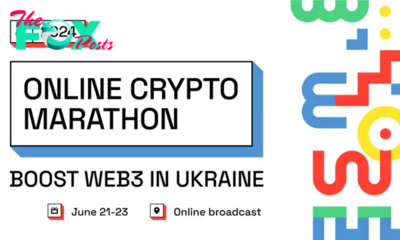Cryptocurrency
KYC, Bitcoin, and the failed hopes of AML policies: Preserving individual freedom

For the past decade, the abbreviations AML and KYC have become an inextricable part of our lives. To help law enforcement track illegal funds, an increasingly constraining set of anti-money-laundering measures is being implemented across the globe. For the past two decades, it has involved extensive know-your-customer obligations for financial institutions, forced to check their clients’ identities, backgrounds, and the nature of their activities. This system, based on surveillance and the presumption of guilt, has helped the global financial system to efficiently fight criminals by cutting off their money flows.
Or has it really?
Real-life numbers tell a different story. Several independent studies have found that AML and KYC policies enable the authorities to recover less than 0.1% of criminal funds. AML efforts cost a hundred times these amounts, but more importantly, they start to threaten our basic right to privacy.
The instances of absurd demands, like the one of a French man asked to justify the origin of €0.66 he wanted to deposit, are hardly raising any eyebrows anymore. Regulators face this ridicule without blinking, all while journalists and whistleblowers continue to expose billions of dollars laundered at the highest levels of the same institutions that put their regular clients through a bureaucratic nightmare.
This suggests that sacrificing our right to privacy may not be justified by the results.
The blockchain emerging as a free value-transferring system, as opposed to the KYC-gated fiat, has given hope to many personal freedom advocates. However, the regulators’ response was to try and integrate both the acts of buying and transferring crypto into the current AML processes.
Does it mean that the blockchain has been tamed, with both the entrance and the exit sealed by the AML regulation?
Luckily, not yet. Or at least, not in every jurisdiction. For example, Switzerland, famous for its practical common sense, often allows companies to define their own risk exposure. This means that people can buy reasonable amounts of crypto without KYC.
The Swiss example could prove valuable in stopping global AML practices from spiralling out of control and bringing a surveillance state upon the world that used to be known as “free”. It is worth taking a closer look at, but first, let’s see why the traditional AML approach is failing.
KYC: the worst policy ever
Few people dare to question the effectiveness of the current AML-KYC policies: no one wants to appear on the “criminal” side of the debate. However, this debate is worth having, for our societies appear to be spending an indecent amount of money and effort on something that just does not work as intended.
As noted by the director of Europol Rob Wainwright in 2018: “The banks are spending $20 billion a year to run the compliance regime … and we are seizing 1 percent of criminal assets every year in Europe.”
This thought was developed in one of the most comprehensive studies on the effectiveness of AML, published in 2020 by Ronald Pol from La Trobe University of Melbourne. It found that “the anti-money laundering policy intervention has less than 0.1 percent impact on criminal finances, compliance costs exceed recovered criminal funds more than a hundred times over, and banks, taxpayers and ordinary citizens are penalized more than criminal enterprises.” Furthermore, “blaming banks for not “properly” implementing anti-money laundering laws is a convenient fiction. Fundamental problems may lie instead with the design of the core policy prescription itself.”
The study uses numerous sources from major countries and agencies, but its author admits it is nearly impossible to reconcile it all. Indeed, as strange as it may seem, despite billions of dollars and euros spent on AML, there is no generalized practice that could allow us to measure its effectiveness.
The reality, however, is difficult to ignore. Despite the 20 years of modern KYC practices, organized crime and drug use continue to rise. What’s more, a number of high-profile investigations have shown massive money laundering schemes happening at the very top of respected financial institutions. Crédit Suisse helping Bulgarian drug dealers, Wells Fargo (Wachovia) laundering money for the Mexican cartels, BNP Paribas facilitating operations of a Gabonese dictator… This is not to mention tax frauds initiated by the banks themselves: Danske Bank, Deutsche Bank, HSBC, and so many others have been proven guilty of scamming their countries. Yet, the regulators’ response was to tighten the rules surrounding small retail-sized transfers and create extensive red tape for average law-abiding citizens.
Why would they choose such cumbersome and inefficient measures? Perhaps the main reason here is that the organizations that define the rules are not responsible for either implementing them or for the end result. This lack of accountability could explain the increasingly absurd rules forcing financial institutions to maintain armies of compliance specialists, and regular people to jump through hoops to perform basic financial operations.
This reality is not simply frustrating; in a broader historical and political context, it reveals worrisome trends. The increasingly intrusive regulations have set up a framework allowing to efficiently filter people. This means that under the pretext of fighting terrorism, different groups can be cut off from the financial system. This includes politically exposed people, dissenting voices, homeless, non-conformists… or those involved in the crypto space.
Crypto AML
The blockchain represents a major challenge for the fiat system because of its decentralized nature. Unlike centralized banks burdened with countless AML-related verifications, blockchain nodes simply run user-agnostic code.
There’s no way a blockchain like Bitcoin could be shaped into the AML mold, however, the intermediaries, also known as VASP (virtual asset service providers), can be. Their AML duties now include two major categories: buying crypto and transferring crypto.
Transferring crypto falls under the prerogative of FATF, and most countries tend to implement this organization’s recommendations sooner or later. These recommendations include the “Travel rule”, which implies that the data about the funds must “Travel” together with them. Currently, FATF recommends that any fiat transfer over $1000 must be accompanied by the information on the sender and the beneficiary.
Different countries impose different thresholds for the travel rule, with $3,000 in the US, €1,000 in Germany, and €0 in France and Switzerland. The upcoming TFR regulation update will impose the mandatory KYC for every crypto transfer starting from €0 in all EU countries.
The good thing about blockchain, though, is that it does not need intermediaries for transferring value. However, it needs them for buying crypto with fiat.
The framework for buying crypto is determined by financial regulators and central banks, and this is where the countries’ traditions play an important role. In France, a highly centralized country, an array of minute regulations, on-site inspections, and conferences define market practices in great detail. Switzerland, a decentralized country famous for its direct democracy based on consensus, typically grants financial intermediaries a certain autonomy in managing their own risk apPetite.
Switzerland is also the country where one of the most prominent liberal economists Friedrich Hayek founded the famous Mont Pelerin Society. Even back in 1947, its members were worried about dangers to individual liberty, noting that “Even that most precious possession of Western Man, freedom of thought and expression, is threatened by the spread of creeds which, claiming the privilege of tolerance when in the position of a minority, seek only to establish a position of power in which they can suppress and obliterate all views but their own.”
Interestingly, a company called Mt Pelerin is operating today on the banks of the Geneva Lake, and this company is a crypto broker.
Buying crypto in Switzerland
Switzerland is far from the libertarian tax haven that many believe it is. It has succumbed to international pressure by de facto canceling its centuries-old banking secrecy tradition for foreign residents. Now, it is a member of the OECD treaty on the automatic exchange of information, and the zeal with which it applies FATF recommendations shows the willingness to shake off its previously sulfurous image. Indeed, FINMA decided to implement the travel rule for crypto starting from 0€, including for unhosted wallets, as early as 2017. In contrast, the “conservative” European Union will enforce this obligation only in 2024.
However, when the funds don’t explicitly leave the country, Switzerland still prefers to not micromanage its financial institutions and does not impose tons of paperwork for routine operations. It now stands as one of the rare countries on the old continent where people can buy crypto without being profiled. This means that companies like Mt Pelerin can process retail-size crypto transactions of CHF 1,000 per day without requiring the client to verify their identity.
This does not mean an open bar, but rather a higher degree of autonomy. For example, Mt Pelerin implements its own fraud detection methods and reserves the right to refuse transactions that raise suspicion. In contrast to the heavily bureaucratic procedures that other countries impose, this approach actually boasts a high success rate at filtering out fraudulent transaction attempts. After all, the firms operating on the front lines often have a better understanding of the ever-evolving fraud tactics than government officials.
For the sake of our societies, the Swiss approach to AML must be preserved and replicated. In a time when mass surveillance has become routine, and the CBDC development threatens to impose total control over our personal finances, we are closer than ever to the dystopia that Friedrich Hayek feared so much.
By controlling our day-to-day transactions, any government, even the best-intentioned, could manipulate our lives and effectively “obliterate any views but their own”. That’s why we buy Bitcoin, and that’s why we want to do so without KYC.
What about the criminals, you might ask? Shouldn’t we cut off their access to money to curb their interest in underground entrepreneurship?
Admittedly, after 20 years of modern AML, this thesis has proven itself wrong. So why not accept the fact that criminals enter our money flows and just follow that money to expose their operations? Continue reading Part 2 to learn more.
A special thank you to Biba Homsy, the Regulatory & Crypto Lawyer at Homsy Legal, and the team of Mt Pelerin for sharing their insights.
This is a guest post by Marie Poteriaieva. Opinions expressed are entirely their own and do not necessarily reflect those of BTC Inc or Bitcoin Magazine.
#crypto
-

 Cryptocurrency1m ago
Cryptocurrency1m agoRoblox’s “Adopt Me”: A Comprehensive Guide to Trading Values
-

 Cryptocurrency1m ago
Cryptocurrency1m agoThe Rise of Cryptocurrency in Online Gambling
-

 Cryptocurrency2m ago
Cryptocurrency2m agoExchanging FTM for wBTC in 2024: When Is the Right Time?
-

 Cryptocurrency2m ago
Cryptocurrency2m agoHere Are The best crypto wallets for Android devices
-

 Cryptocurrency5m ago
Cryptocurrency5m agoWhy Donald Trump Loves Bitcoin
-

 Cryptocurrency5m ago
Cryptocurrency5m agoBEVM Visionary Builders (BVB) Program Launches a 60 Million Ecosystem Incentives Program
-

 Cryptocurrency5m ago
Cryptocurrency5m agoClues To MKR’s Price Path Ahead
-

 Cryptocurrency5m ago
Cryptocurrency5m agoBitReXe: Enabling Parallel VMs on Bitcoin Network






























